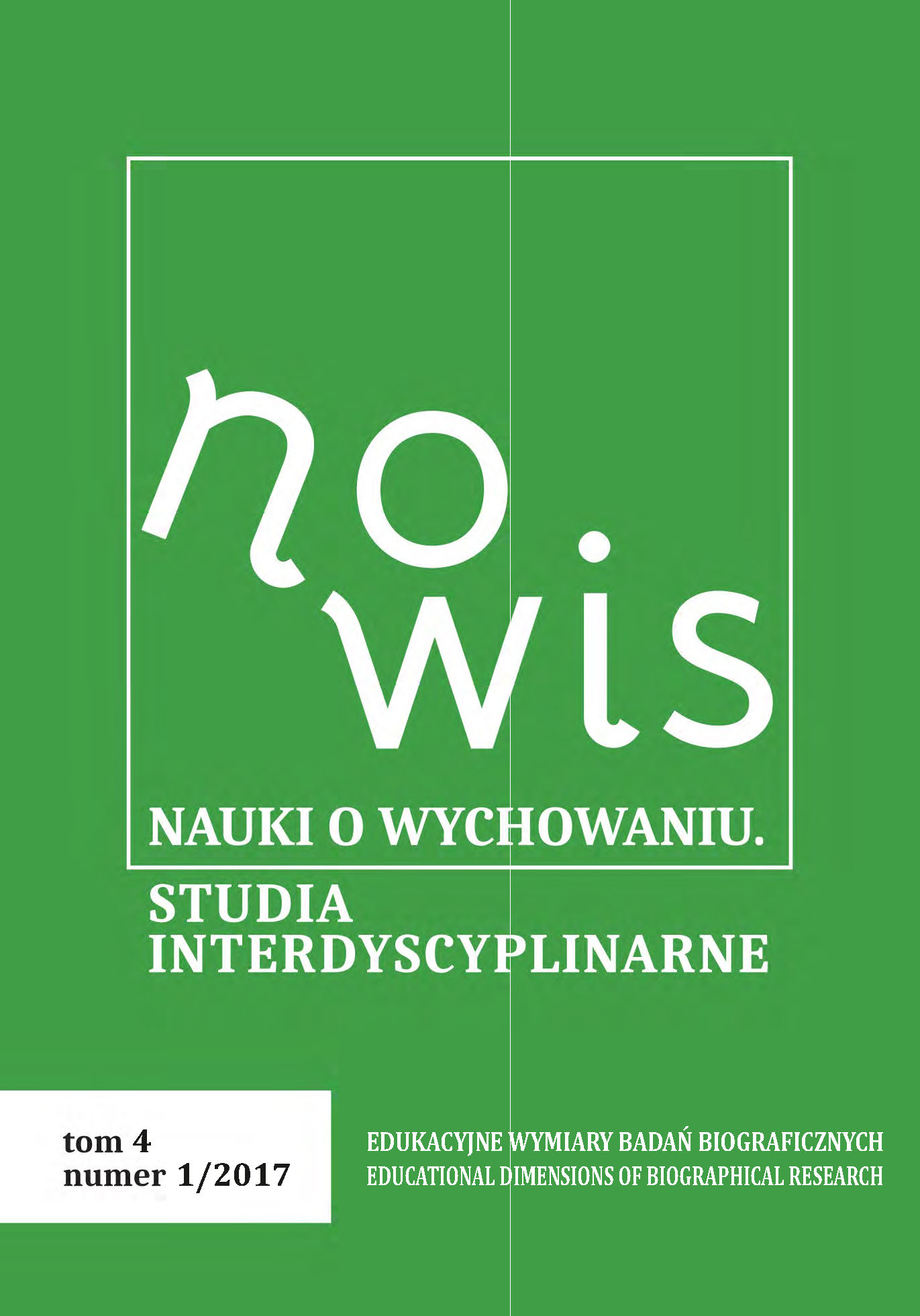Daughter–Father Relationships. Biographical Research from a Feminist Perspective
DOI :
https://doi.org/10.18778/2450-4491.04.13Mots-clés :
daughter, father, biographical experience, feminist methodology, reflexivityRésumé
This article aims to contribute to the debate about the reflection on biographical experiences, in particular, the relationship between daughter and father. It presents my research project devoted to young adult women, students, and their perceptions of their relationships with fathers. It also contains an analysis of autobiographical essays of female students (the research participants). The main idea of this research is to appreciate the women’s points of view and to underline the role of reflexivity in the constitution of self-knowledge. Also, I try to discuss my process of becoming a reflective feminist researcher.
Références
Alexander I. (1989) A Conversation On Studying And Writing About Women’s Lives Using Nontraditional Methodologies, “Women’s Studies Quarterly”, 17 (3–4): 99–114.
View in Google Scholar
Appelrouth S. Edles L. D. (2008) Classical and Contemporary Sociological Theory: Text and Readings, Los Angeles, London, New Delhi, Singapore, Pine Forge Press.
View in Google Scholar
Collins Hill P. (1990) Black Feminist Thought: Knowledge, Consciousness and the Politics of Empowerment, Boston, Unwin Hyman.
View in Google Scholar
Collins Hill P. (2004) Learning from the Outsider With in: The Sociological Significance of Black Feminist Thought in: The Feminist Standpoint Theory Reader, S. Harding (ed.), New York, Routledge.
View in Google Scholar
Collins Hill P. (2005), Some Group Matters: Intersectionality, Situated Standpoints, and Black Feminist Thought in: A Companion to African-American Philosophy, T. L. Lott, J. P. Pittman (eds.), Blackwell Publishing.
View in Google Scholar
Haraway D. (1988) Situated Knowledges: The Science Question in Feminism and the Privilege of Partial Perspective, “Feminist Studies”, 14 (3): 575–599, http://www.staff.amu.edu.pl/~ewa/Haraway,%20Situated%20Knowledges.pdf
View in Google Scholar
Harding S. (1987) Conclusion. Epistemological Questions in: Feminism and Methodology. Social Science Issues, S. Harding (ed.), Bloomington and Indianapolis, Indiana University Press: 181–189.
View in Google Scholar
Harding S. (1991) Whose Science? Whose Knowledge? Thinking from Women’s Lives, New York, Open University Press.
View in Google Scholar
Intermann K. (2010) 25 Years of Feminist Empiricism and Standpoint Theory: Where Are We Now? “Hypatia”, 25 (4): 778–796.
View in Google Scholar
Maynard M. (1995) Feminist Social Research, „Kwartalnik Pedagogiczny” [The Pedagogical Quarterly], 1–2 (155–156): 97–117.
View in Google Scholar
Olesen V. (2005) Early Millennial Feminist Qualitative Research: Challenges and Contours in: The Sage Handbook of Qualitative Research, N. K. Denzin, Y. S. Lincoln (eds.), (3rd ed.): 235–278, Thousand Oaks, Sage Publications.
View in Google Scholar
Smith D. (1987), The Everyday World as Problematic: A Feminist Sociology, Boston, Northeastern University Press.
View in Google Scholar
Smith D. (1990) The Conceptual Practices of Power: A Feminist Sociology of Knowledge, Toronto, University of Toronto Press.
View in Google Scholar
Smith D. (2005) Institutional Ethnography: A Sociology for People, Toronto, AltaMira Press.
View in Google Scholar
Téléchargements
Publiée
Comment citer
Numéro
Rubrique
Licence

Ce travail est disponible sous licence Creative Commons Attribution - Pas d'Utilisation Commerciale - Pas de Modification 4.0 International.





 Le site web de la revue, hébergé par l'équipe éditoriale de NOWIS se trouve sur la plate-forme Index Copernicus:
Le site web de la revue, hébergé par l'équipe éditoriale de NOWIS se trouve sur la plate-forme Index Copernicus: 





